 In November 2018, when all the dust settled and all the votes were counted in the CD 2 race, the final count looked like this:
In November 2018, when all the dust settled and all the votes were counted in the CD 2 race, the final count looked like this: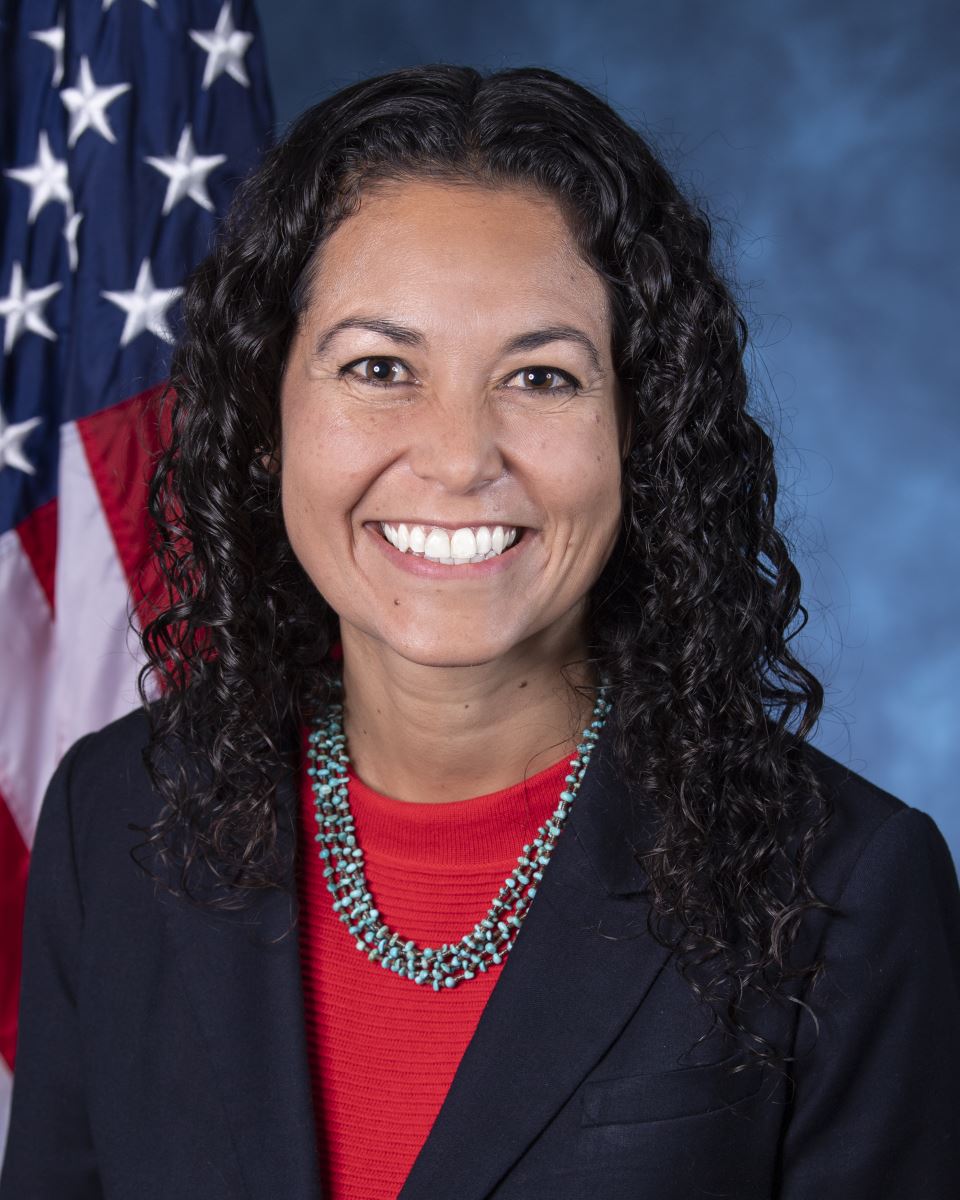
| Party |
Candidate |
Votes |
% |
| Democrat |
Xochitl Torres Small |
101,489 |
50.93 |
| Republican |
Yvette Herrell |
97,767 |
49.07 |
So the Republicans had lost CD 2 for only the second time in 38 years.
News reports late into the night of the election announced that absentee ballots had been “found” in Doña Ana County. More than 8,000 to be specific. It raised suspicions, and eventually a review of the ballots and the entire procedures of the Doña Ana County Clerk’s office was conducted.
That review found a startling number of irregularities, and an election procedures compliance firm subsequently published a 44-page report which detailed what had taken place in the greater Las Cruces area.
However, the study, which was limited only to Doña Ana County, and did not look at the other 17 counties, did not conclude that there were enough irregularities to overturn the election.
FAST FORWARD TO EARLY 2019
Almost immediately, Herrell announced she would run again. One of her 2018 primary opponents, the third-place finisher Gavin Clarkson, made it known he would switch to running for the US Senate. Then a former PRC candidate, Chris Mathys, announced that he would run. Mathys had lost the PRC GOP primary to former PRC Commissioner Ben Hall.
HERRELL 2018
In her 2018 effort spearheaded by Steve Pearce, a lot of legislators and party establishment figures lined up behind Yvette Herrell early-on and she secured the Republican nomination impressively, 49-32 over former GOP State Chair Monty Newman.
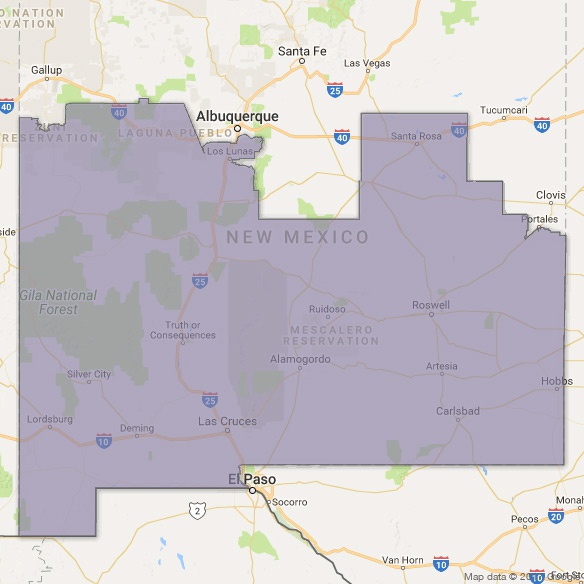 It is important to remember that Pearce’s aggressive campaigning over the previous 20 years and his willingness to debate and speak everywhere in CD 2 had allowed him to win huge swaths of soft Ds, so much so that he had racked up 25-point wins, by margins of nearly 60,000 votes.
It is important to remember that Pearce’s aggressive campaigning over the previous 20 years and his willingness to debate and speak everywhere in CD 2 had allowed him to win huge swaths of soft Ds, so much so that he had racked up 25-point wins, by margins of nearly 60,000 votes.
The district was drawn to give an edge to Republican candidates (Trump carried it, despite losing the state overwhelmingly). And Pearce had built on that edge so much that many Republicans saw the district as un-lose-able.
But Yvette Herrell ended up running what many saw as a mediocre campaign, with Republicans expressing concern that she repeatedly refused to debate Torres Small. Democrats used that fact to assert that Herrell did not have command of the issues and could not go toe-to-toe with Small.
This appeared to have a decisive effect on independent voters and both the soft Ds and soft Rs that Pearce had essentially made part of his base. But they weren’t part of Herrell’s. It appeared that in the end Small simply ended up out-working her.
HERRELL 2020
As we noted last winter, we didn’t think Herrell had cleared it with Pearce before she made her announcement for a second-go at CD 2. In public appearances, he appeared taken off-guard, almost as if he didn’t think it was a good idea, or that he was, perhaps, considering stepping back in 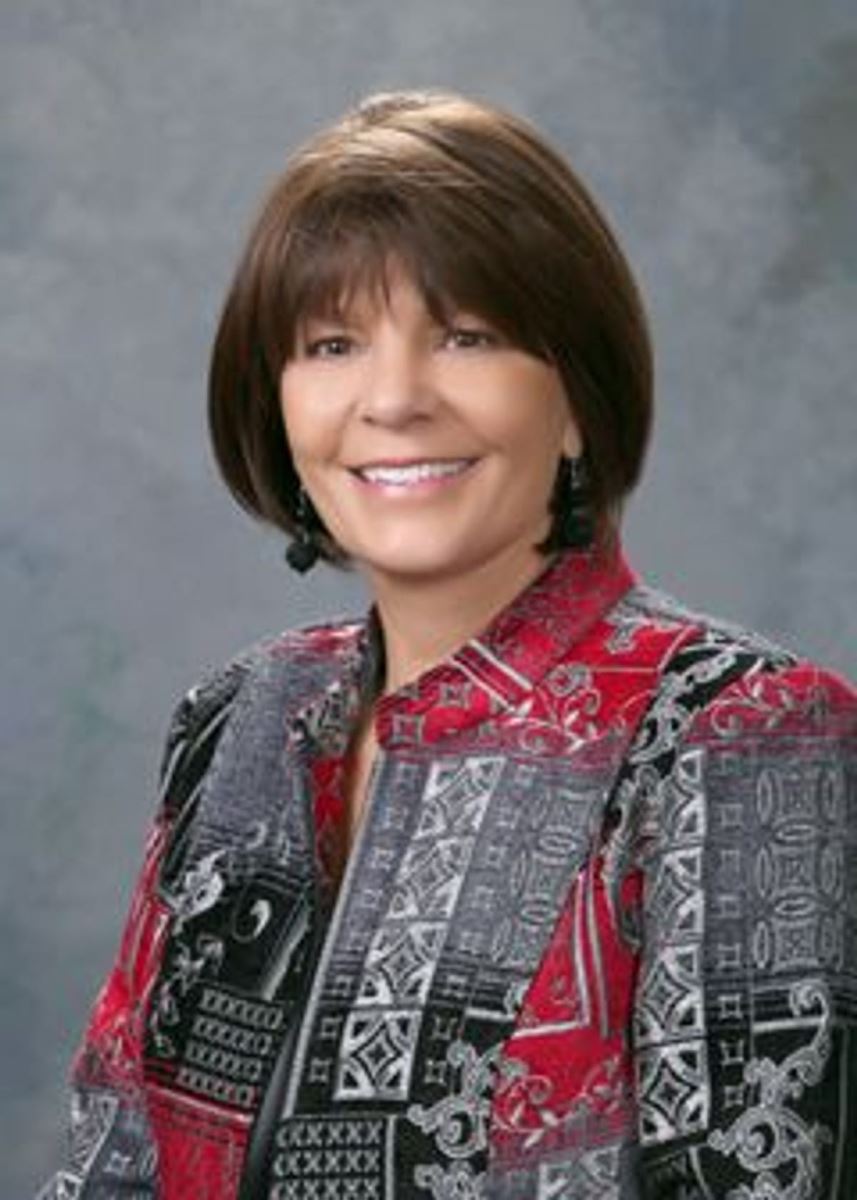 himself. (Recently, however, we have been informed there are personal considerations that have ensured that Pearce won’t do that.)
himself. (Recently, however, we have been informed there are personal considerations that have ensured that Pearce won’t do that.)
So Herrell has moved forward aggressively. The same group that surrounded her in 2018 have circled the wagons again. Her campaign has sent out a couple of very hard-hitting letters—one signed by Herrell and one signed by Republican State Representative Jim Townsend of Artesia.
LETTER ONE: A VICIOUS ATTACK ON MATHYS
In the first letter, Herrell called her only announced opponent a “liar,” writing:
“Chris Mathys is up to his old antics.”
And:
“Lying Chris has been spreading nasty and untrue things about me…”
(The words “old antics” seem odd in that Mathys has only run for office once, and the person he lost to by 27 votes is now his campaign chair and has said they had nothing but a positive campaign together.)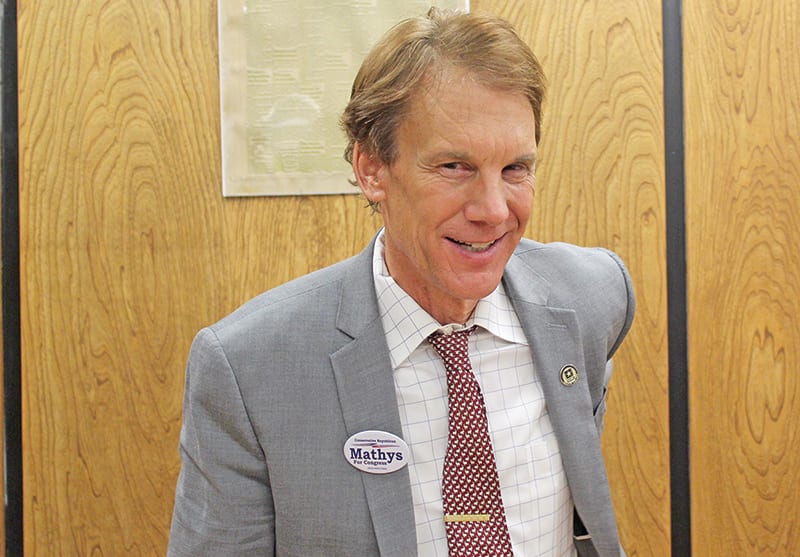
Herrell went on:
“Probably the most disappointing lie Chris has decided to spread is that I introduced a bill that would allow abortion up to 6 months…”
She closes with what appears to be a very impressive list of endorsements, which she claims is for her current campaign. The endorsements include such conservative luminaries as Congressmen Jim Jordan and Mark Meadows. She closes with:
"We are tired of the same, deceptive antics of my opponent. Lying Chris is so desperate to be elected to anything that he’s willing to put aside the truth…”
Ouch!

(advertisement)
FULL COMPLIANCE CONSULTING, LLC — Research and Analysis of Elections-Related Issues in New Mexico
Assisting candidates, elected officials, committees, PACs, lobbyists, and law firms in navigating Campaign Finance Reporting, Campaign Practices, the Governmental Conduct Act, and the details of the New Mexico Election Code.
♦ Petitions ♦ Ballot Access ♦ Petition Challenges ♦ Recounts ♦ Contests ♦ Impoundments ♦ Research
Statewide Offices • Congressional Races • Legislative Races • Municipal Elections • School Board Elections • County Offices • Judicial & Regional Offices • Ballot Questions • Ballot Petitions and Signature Verification
Email: fccllc@terrcomm.net Full Compliance Consulting, LLC P.O. Box 2163 ♦ Santa Fe, NM 87504
(advertisement)
SO WE INTERVIEWED MATHYS TO GET HIS TAKE*
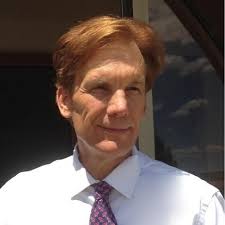 Mathys has lived in New Mexico about five years and is a commercial lender, operating Chris Mathys Properties in Las Cruces. He has a B.A. and an MBA and has about $160,000 on hand, according to FEC reports. (Herrell has about $200,000.)
Mathys has lived in New Mexico about five years and is a commercial lender, operating Chris Mathys Properties in Las Cruces. He has a B.A. and an MBA and has about $160,000 on hand, according to FEC reports. (Herrell has about $200,000.)
We asked if there were any differences between Herrell and him on any issues. He told us there were “about five” that he wanted to mention. They were:
- Veteran status: “First of all, I’m the only veteran in the race. And while I don’t believe it’s a requirement to have served in the military, I do believe there are special advantages and experiences that come from military training and service. New Mexico has 58,000 veterans, and many of them live in southern New Mexico.”
- Abortion: “There is quite a contrast on the issue of the unborn. Yvette believes abortion should be legal through the fifth month of pregnancy. I believe life begins at conception. That’s a big difference.”
- Business experience: “I am a businessman, I have met a payroll. I believe that managing a business is critical for someone in politics. I believe it’s one of the things that makes President Trump successful. It also appears that Yvette was partner in a business that received over $400,000 in rent from the state of New Mexico, and she did not disclose the income in her financial reporting disclosure when she ran for Congress. I have not and will not enter into any contracts with the state or federal government other than when I enlisted in the United States Army. We must make sure elected officials do not in enrich themselves when serving in public office.”
- Debates: “Yvette Herrell turned down all four debates with Xochitl Torres Small. Why? No one knows. But it also hurt her very badly with independent voters wanting to know what she stood for and how she contrasted with Small. I guarantee you that I will debate Torres Small at any venue on any day.”
- Second Amendment: “With regard to gun ownership, Yvette is on record as favoring more background checks. I believe we already have sufficient laws on the books. We don’t need any more.”
BACK TO HERRELL: AN UNUSUAL LETTER SIGNED BY REPRESENTATIVE TOWNSEND*
 There have been rumors that the Herrell campaign is spreading misinformation about Roswell Republican Claire Chase, saying that she is considering a run for the US Senate, and will not run for CD 2. Along those lines, State Representative Jim Townsend's signature went out over some unusual language in a fundraising letter just a couple of days ago. It opened with:
There have been rumors that the Herrell campaign is spreading misinformation about Roswell Republican Claire Chase, saying that she is considering a run for the US Senate, and will not run for CD 2. Along those lines, State Representative Jim Townsend's signature went out over some unusual language in a fundraising letter just a couple of days ago. It opened with:
“I am asking for your trust and support for Yvette Herrell to be the Republican nomneee in 2020.
All well and good so far.
It then listed a bunch of impressive endorsements. (Again, all okay.)
Then the letter goes off into what some will probably interpret as tacit admissions that the 2018 campaign was not very well done. To wit:
Let me share with you why the 2020 campaign will be different and will result in a victory next November:
... Her new team is ready for the fight in 2020. They have made substantial changes to the operation and she intends to:
- Challenge Xochitl Torres Small to debate, before ballots go out
- Raise more money to combat the Democrat's out-of-state money machine
- Focus on grassroots development and getting our voters to the polls
This is about as straightforward an acknowledgment that the "old team" (whoever that was) had not done those things. The decision to debate (this time around) stands out pretty starkly. But while these are good things to do now, they also can end up raising serious questions about Herrell's strengths as a candidate.
But within the letter there were these—potentially even more troubling—passages:
"Unite to Win…It’s time we dispel the rumors and unite this party to win in 2020. There are those who wish to judge Yvette's last campaign and create conflict. Their goal is to divide our Republican party, and I am speaking out because we can't let that happen. I am asking for your trust and support for Yvette Herrell to be the Republican nominee in 2020...
There is too much at stake to allow division in our party. Let’s UNITE to win and restore Conservative values to Washington. I humbly ask you to vote for my friend Yvette Herrell!
WHY THOSE PASSAGES ARE POTENTIALLY TROUBLING FOR THE REPUBLICANS*
We received some complaints from Southeastern New Mexico about the last phraseology.
It appears that the message the Herrell campaign is trying to send to Republican voters is that Herrell is the only candidate that is "acceptable," and that any other GOP candidate—whether it is Mathys or any other Republican who may get in—is stepping on the concept of “unity” and is creating "division."
Any number of political observers (you don’t even have to be an activist) may see that that’s quite a stretch. The overall message of the letter could easily be interpreted as saying, in essence:
“Hey, we got beat when we shouldn’t have, but we are going to do a lot of things differently this time, and we aren't going to be afraid of debating either. We are cleaning up our campaign, and we will win. And, oh by the way, if anyone else is thinking about getting in, well, that would be “divisive.”
That would sort of be a pretty cool narrative if you could sell it. But it will almost certainly not go over big with a lot of Republican activists, donors, and primary voters. For many, this isn't their first rodeo.
A number of key political actors—in both major parties—believe in "keeping your powder dry" so to speak. In other words, let's not go all-in from the get-go about any candidate just because he or she is the first, or second, to declare.
This is especially true if that candidate has lost the same race already. It is certainly logical for the Republican faithful to inquire: If Candidate A cannot beat Candidate B when there is no incumbent, why should Candidate A be able to beat Candidate B when Candidate B is now the incumbent? (This question is as old as politics itself. And we are sure it has occurred to people before.)
Forbidding a "Critique" of Your Campaign—AFTER Your Own Letter Critiqued Your Own Previous Campaign
 So the second letter, trying to scare off any competition—by asserting that even the act of considering an alternative candidate is "divisive"—carries with it the very seeds of divisiveness that it purports to try to avoid. And forbidding any "critique" of the previous campaign while the candidate's own letter goes to great lengths to critique her own previous campaign seems somewhat strange, or at least awkward.
So the second letter, trying to scare off any competition—by asserting that even the act of considering an alternative candidate is "divisive"—carries with it the very seeds of divisiveness that it purports to try to avoid. And forbidding any "critique" of the previous campaign while the candidate's own letter goes to great lengths to critique her own previous campaign seems somewhat strange, or at least awkward.
This is without even mentioning that Herrell's campaign has very strongly attacked Mathys. These after-the-fact "prohibitions" and before-the-fact "warnings and admonitions" don't make a lot of sense.
We certainly don't believe that Representative Townsend believes these things, but rather these confusing and self-contradicting messages appear to be a part of some sort of strategic effort by the "new team."
For our part, the old adage, keep your powder dry and see who all files come next February is probably the wisest course of action.
Herrell may in fact be the best choice for Republicans, who knows? But making that decision, and making it final and uncontestable in August—6 months before filing and 10 months before the election—certainly seems an unwise approach to the Republican primary.
* EDITOR'S NOTE: NMPJ reached out to the Herrell campaign for comment, but we received no response.
Email us (at nmpj@dfn.com) with your feedback, comments, questions and ideas.